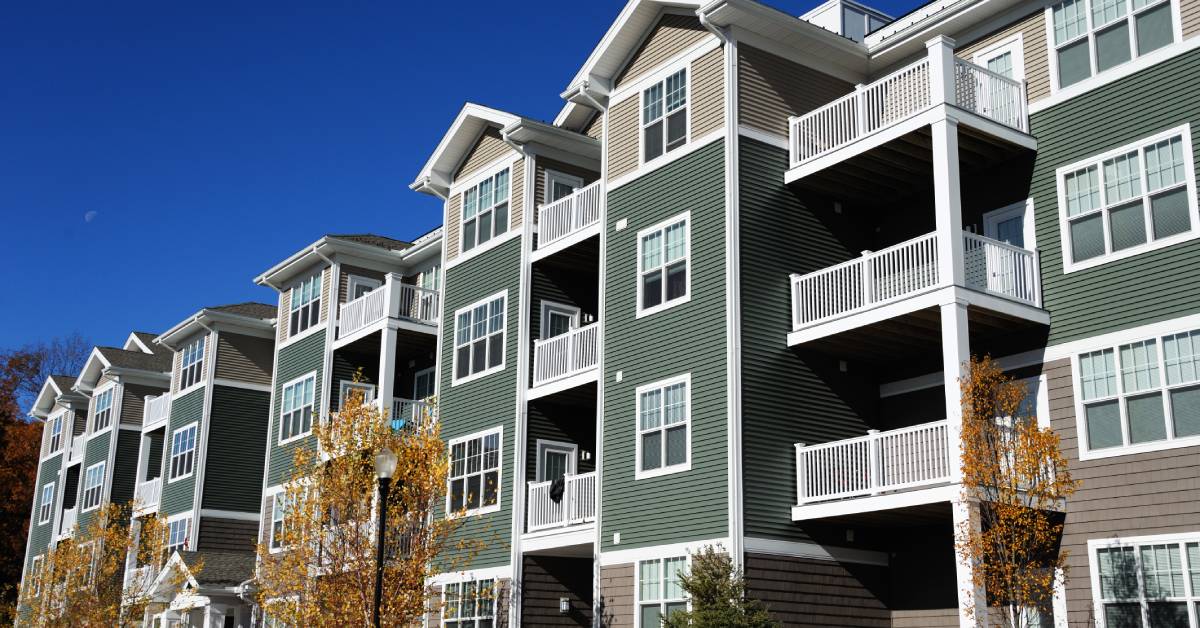5 Types of Properties To Invest in Through a DST

Carl E. Sera, CMT
December 20, 2024
For real estate investors and high-net-worth individuals, Delaware Statutory Trusts (DSTs) are perfect for diversifying portfolios and generating passive income. DSTs allow you to own fractional interests in institutional-grade properties, offering a way to access high-value real estate without the complexities of direct ownership.
Investing in the right types of properties through a DST can maximize your returns and mitigate risks. This article explores DSTs in detail, outlining the property types to consider and the decision-making criteria that drive successful investments.
How Delaware Statutory Trusts (DSTs) Function
A DST is a legal entity created in accordance with Delaware law that allows multiple investors to pool their funds in order to acquire and manage real estate properties. Operating much like a real estate investment trust (REIT), DSTs provide opportunities to access high-quality, professionally managed properties that might require substantial capital for individual ownership. However, DSTs differ from REITs in the level of control investors have over property investments.
Investing through a DST comes with several advantages. One of the most appealing is passive income. The trust handles property management, leaving investors free from the day-to-day concerns of managing tenants, maintenance, or compliance. DSTs also excel in diversification, as investors can spread their funds across different geographic regions, property types, and industries to reduce risk.
Another benefit is their compatibility with 1031 exchanges, allowing investors to defer capital gains taxes when selling one property and reinvesting through a DST. At Sera Capital, we are a fee-only fiduciary that specializes in Delaware Statutory Trusts and helps investors navigate them with a tax-efficient and stress-free strategy.
Types of Properties Suitable for DST Investment
The flexibility of DST structures makes them suitable for a variety of property types with unique risks and rewards. The selection of property types should align with the investor’s financial goals, market outlook, and appetite for risk.
Residential Properties
Residential real estate is a prominent DST investment class driven by the steady demand for housing. Multifamily properties, such as apartment complexes, are often included in DST portfolios. The rental market dictates the performance of residential DST assets. Urban areas with booming populations and strong job markets present lucrative opportunities, while regions experiencing declining demographics are riskier.
The stability of residential properties lies in their broad appeal and consistent demand. Even during economic downturns, people require housing, making residential investments generally less volatile. For investors seeking predictable cash flow, residential properties are prudent investments.
Industrial Properties
With the continued rise of E-commerce and advancements in logistics, distribution centers and warehouses are integral to supporting supply chains and retail operations. This growth has driven the demand for industrial properties, positioning them as attractive investment choices for DSTs.
The expansion of online retail and the need for more sophisticated logistics operations have expanded the industrial sector. Strategic investments in industrial properties near key transportation routes and urban centers can yield significant advantages. These locations attract tenants requiring warehousing, distribution, and manufacturing space, guaranteeing consistent demand and income streams for investors.

Office Properties
Office properties are big in the commercial real estate sector and are often good for DST investment strategies. The dynamic nature of office spaces offers opportunities and considerations for investors looking to include this asset type in their portfolios. Economic growth, technological advancements, and evolving work culture trends influence the demand for office spaces.
Recovery from the COVID-19 pandemic has brought renewed interest in office investments as companies reassess their space requirements amidst hybrid work models. Strategic investments in metropolitan areas with high economic activity and business-friendly environments are particularly promising. These areas often host leading corporations seeking headquarters or regional offices, leading to a steady stream of tenants and rental income, which drives performance for DSTs.
Retail Properties
Retail properties are valuable in the commercial real estate sector and offer diverse investment opportunities within a DST framework. As the retail landscape continues to evolve, DST investors must adapt to changing consumer behaviors and market conditions while seeking stable returns.
The retail sector has undergone considerable transformation due to the rise of E-commerce and shifts in consumer preferences. Despite these challenges, retail properties in high-traffic areas can provide substantial value and consistent income. Shopping centers, strip malls, and single-tenant locations can attract diverse tenants, ranging from national chains to local businesses, and support a resilient income stream for the DST.
Specialized Properties
Specialized real estate is among the many types of properties you can invest in through a DST. This property type is worth considering among DST investors seeking higher returns by targeting niche markets. Healthcare facilities, senior housing communities, and student housing cater to specific demographics.
Healthcare properties, including medical office buildings, are relatively recession-resistant due to the consistent demand for health services. Senior housing, an emerging investment segment, benefits from an aging population and an increasing need for assisted living facilities. Similarly, student housing provides reliable performance in university towns where demand usually outpaces supply.
While specialized properties often offer higher yields, they also require thorough due diligence. Understanding market trends, local demographics, and regulatory factors is essential before committing to investments in this category.
Criteria for Selecting Properties in a DST
Choosing the right properties for a DST investment takes more than recognizing popular asset types. Investors must evaluate several factors to ensure their portfolios align with financial goals and market expectations.
Financial Considerations
Analyzing cash flow potential, historical performance, and projections for appreciation can help you determine the property’s viability in delivering long-term returns. Look for DSTs with stable income streams from properties with long-term leases and tenants with strong credit ratings. Understanding the trust’s debt structure is also valuable, as overly leveraged properties may carry significant financial risks.
Location Analysis
The location of a property matters, especially for DST investments. It determines its desirability, rental income, and potential appreciation. Urban centers and high-growth regions typically offer big returns, thanks to thriving economies and strong tenant demand. Conversely, properties in struggling markets may have trouble maintaining occupancy or face value erosion over time. A sound location analysis evaluates the surrounding demographics, local economy, and infrastructure developments.

Taking the Next Step in DST Investments
A DST enables real estate investors to access premium properties while enjoying the benefits of professional management, passive income, and diversification. DSTs accommodate a broad spectrum of investor goals and preferences, from residential and commercial spaces to niche offerings like healthcare and senior housing.
If you’re ready to explore DST investments, now is the perfect time to assess your options and refine your strategy. You can schedule a free consultation with our team today if you need a fee-only fiduciary to help you make tax-efficient choices with your investments.
Categories
Strategize Your Success
